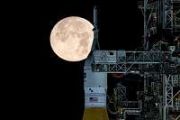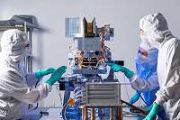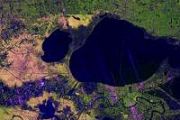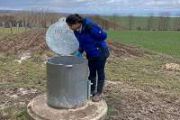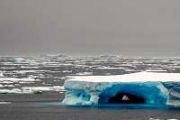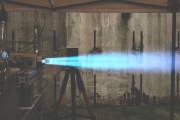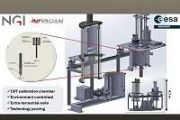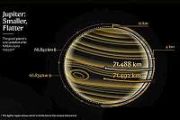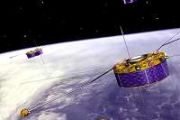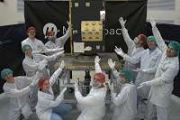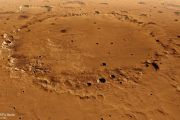
Copernical Team
Astroscale launches Docking Plate to capture defunct satellites
 Bremen, Germany (SPX) Nov 16, 2021
Astroscale today revealed a universal docking device the company hopes will become standard fitment on all future low Earth orbit (LEO) satellites. Following on from the COP26 climate conference, Paris Peace Forum Net Zero Space Declaration, and the G7 statement on space sustainability, Astroscale calls on operators to prepare their spacecraft with a Docking P
Bremen, Germany (SPX) Nov 16, 2021
Astroscale today revealed a universal docking device the company hopes will become standard fitment on all future low Earth orbit (LEO) satellites. Following on from the COP26 climate conference, Paris Peace Forum Net Zero Space Declaration, and the G7 statement on space sustainability, Astroscale calls on operators to prepare their spacecraft with a Docking P NASA receives 11th consecutive clean financial audit opinion
 For the 11th straight year, NASA has received an unmodified, or "clean," opinion from an external auditor on its fiscal year 2021 financial statements.
The rating is the best possible audit opinion, certifying that NASA's financial statements conform with accepted accounting principles for federal agencies and accurately present the agency's financial position.
"NASA is committed to
For the 11th straight year, NASA has received an unmodified, or "clean," opinion from an external auditor on its fiscal year 2021 financial statements.
The rating is the best possible audit opinion, certifying that NASA's financial statements conform with accepted accounting principles for federal agencies and accurately present the agency's financial position.
"NASA is committed to Rocket Lab to acquire space hardware company Planetary Systems Corporation
 Rocket Lab USA, a global leader in launch services and space systems, reports it has signed a definitive agreement to acquire Planetary Systems Corporation (PSC), a Maryland-based spacecraft separation systems company, for $42 million in cash and 1,720,841 shares of the Company's common stock, plus the potential for an additional 956,023 shares of common stock for a performance earnout based on
Rocket Lab USA, a global leader in launch services and space systems, reports it has signed a definitive agreement to acquire Planetary Systems Corporation (PSC), a Maryland-based spacecraft separation systems company, for $42 million in cash and 1,720,841 shares of the Company's common stock, plus the potential for an additional 956,023 shares of common stock for a performance earnout based on Russian test blamed for space junk threatening space station
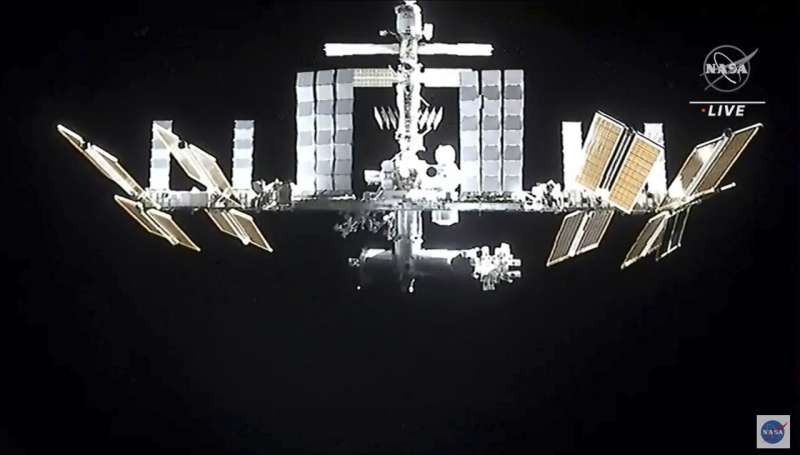
A Russian weapons test created more than 1,500 pieces of space junk that is now threatening the seven astronauts aboard the International Space Station, U.S. officials said Monday.
The State Department confirmed that the debris was from an old Russian satellite destroyed in Monday's anti-satellite weapons test.
"It was dangerous. It was reckless. It was irresponsible," said State Department spokesman Ned Price.
Earlier Monday, the four Americans, one German and two Russians on board were forced to seek shelter in their docked capsules because of the debris.
At least 1,500 pieces of the destroyed satellite were sizable enough to show up on radar, Price said.
US slams Russia for 'irresponsible' space missile test
 The United States denounced Russia on Monday for conducting a "dangerous and irresponsible" missile strike that blew up one of its own satellites, creating a debris cloud that forced the International Space Station's crew to take evasive action.
Washington wasn't informed in advance about the test, only the fourth to ever strike a satellite from the ground, and will talk to allies about ho
The United States denounced Russia on Monday for conducting a "dangerous and irresponsible" missile strike that blew up one of its own satellites, creating a debris cloud that forced the International Space Station's crew to take evasive action.
Washington wasn't informed in advance about the test, only the fourth to ever strike a satellite from the ground, and will talk to allies about ho Space debris 'event' forces ISS crew to take evasive action (Update)
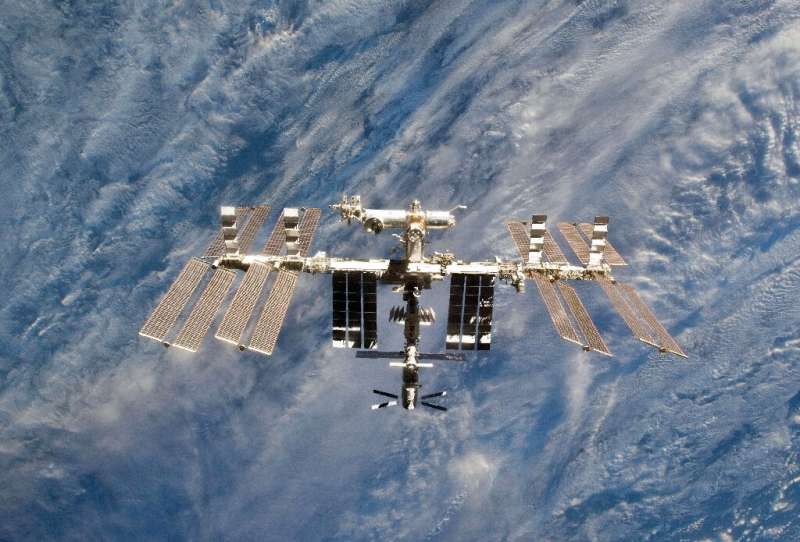
The United States said Monday it was investigating a "debris-generating event in outer space" after astronauts on the International Space Station were forced to prepare for a possible evacuation.
The incident came amid unconfirmed reports that Russia had carried out an anti-satellite weapon (ASAT) test—rare show-of-force demonstrations criticized by the space community because of the risk they create for crews in low Earth orbit.
"US Space Command is aware of a debris-generating event in outer space. We are actively working to characterize the debris field and will continue to ensure all space-faring nations have the information necessary to maneuver satellites if impacted," the military branch said.
"We are also in the process of working with... the State Department and NASA, concerning these reports and will provide an update in the near future.
Carbon dioxide cold traps on the moon are confirmed for the first time
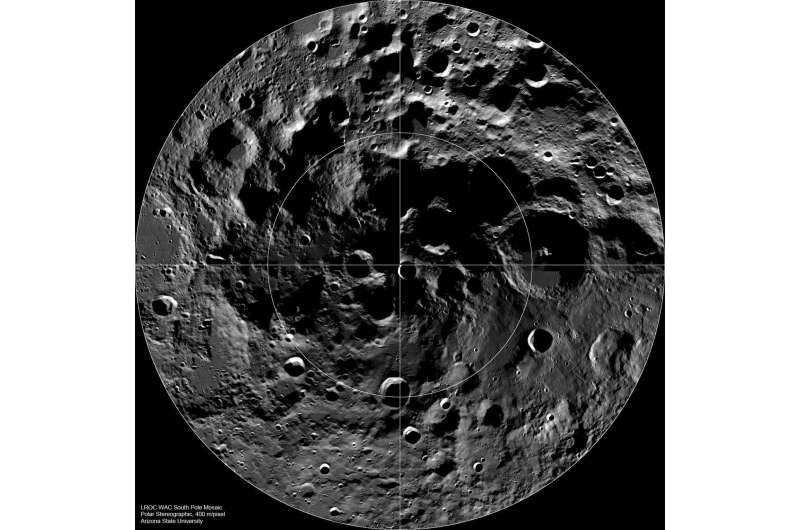
After decades of uncertainty, researchers have confirmed the existence of lunar carbon dioxide cold traps that could potentially contain solid carbon dioxide. The discovery will likely have a major influence in shaping future lunar missions and could impact the feasibility of a sustained robot or human presence on the moon.
Russia test blamed for space junk threatening space station

A Russian weapons test created more than 1,500 pieces of space junk that is now threatening the seven astronauts aboard the International Space Station, U.S. officials said Monday.
The State Department confirmed that the debris was from an old Russian satellite destroyed in Monday's anti-satellite weapons test.
"It was dangerous. It was reckless. It was irresponsible," said State Department spokesman Ned Price.
Earlier Monday, the four Americans, one German and two Russians on board were forced to seek shelter in their docked capsules because of the debris.
At least 1,500 pieces of the destroyed satellite were sizable enough to show up on radar, Price said.
Not saying it was aliens, but 'Oumuamua probably wasn't a nitrogen iceberg
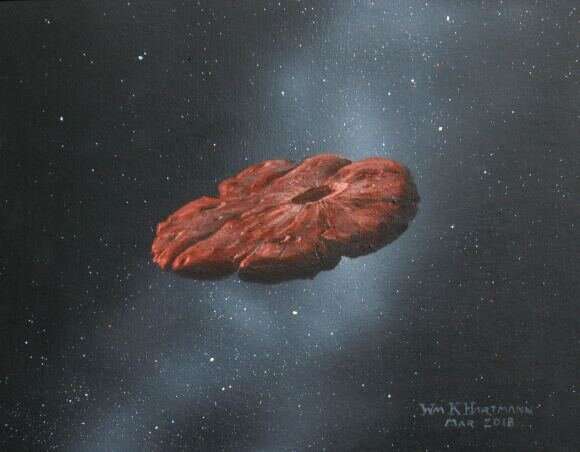
On October 19, 2017, astronomers made the first-ever detection of an interstellar object (ISO) passing through our solar system. Designated 1I/2017 U1 ′Oumuamua, this object confounded astronomers who could not determine if it was an interstellar comet or an asteroid. After four years and many theories (including the controversial "ET solar sail" hypothesis), the astronomical community appeared to land on an explanation that satisfied all the observations.
The "nitrogen iceberg" theory stated that "Oumuamua was likely debris from a Pluto-like planet in another stellar system. In their latest study, titled "The Mass Budget Necessary to Explain "Oumuamua as a Nitrogen Iceberg," Amir Siraj and Prof. Avi Loeb (who proposed the ET solar sail hypothesis) offered an official counter-argument to this theory. According to their new paper, there is an extreme shortage of exo-Plutos in the galaxy to explain the detection of a nitrogen iceberg.
In the paper where he broached the possibility, Loeb indicated that "Oumuamua's unusual character and behavior were consistent with a solar sail.
Here we GO, Matthias
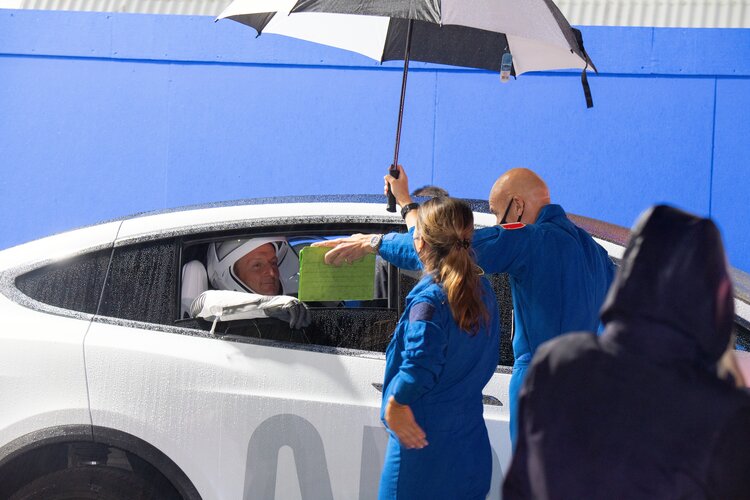 Image:
Image:
After a series of delays due to weather and a minor crew medical issue, ESA astronaut Matthias Maurer was finally launched to the International Space Station on 11 November. But not before reading some final words of support, shared by ESA astronaut Luca Parmitano, as Matthias waited to drive to the launchpad.
Alongside NASA astronauts Raja Chari, Tom Marshburn and Kayla Barron, Matthias lifted off on board Space X Crew Dragon “Endurance” at 03:03 CET Thursday 11 November and arrived ahead of schedule to the Station in the early hours of 12 November.
It is the first space


